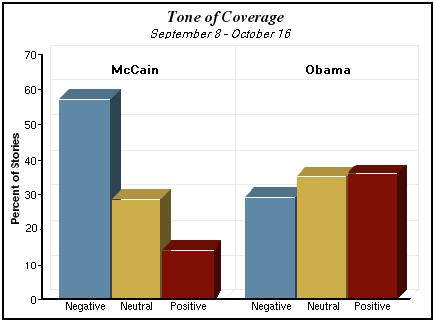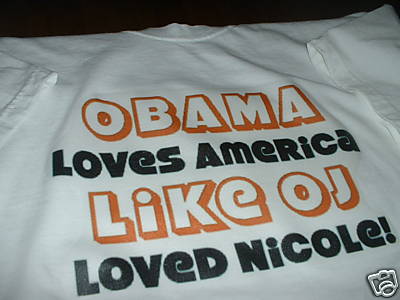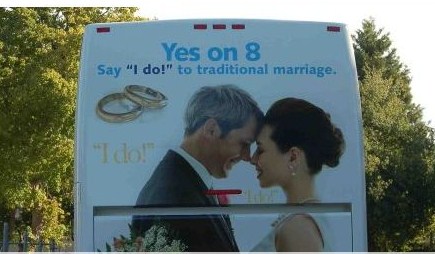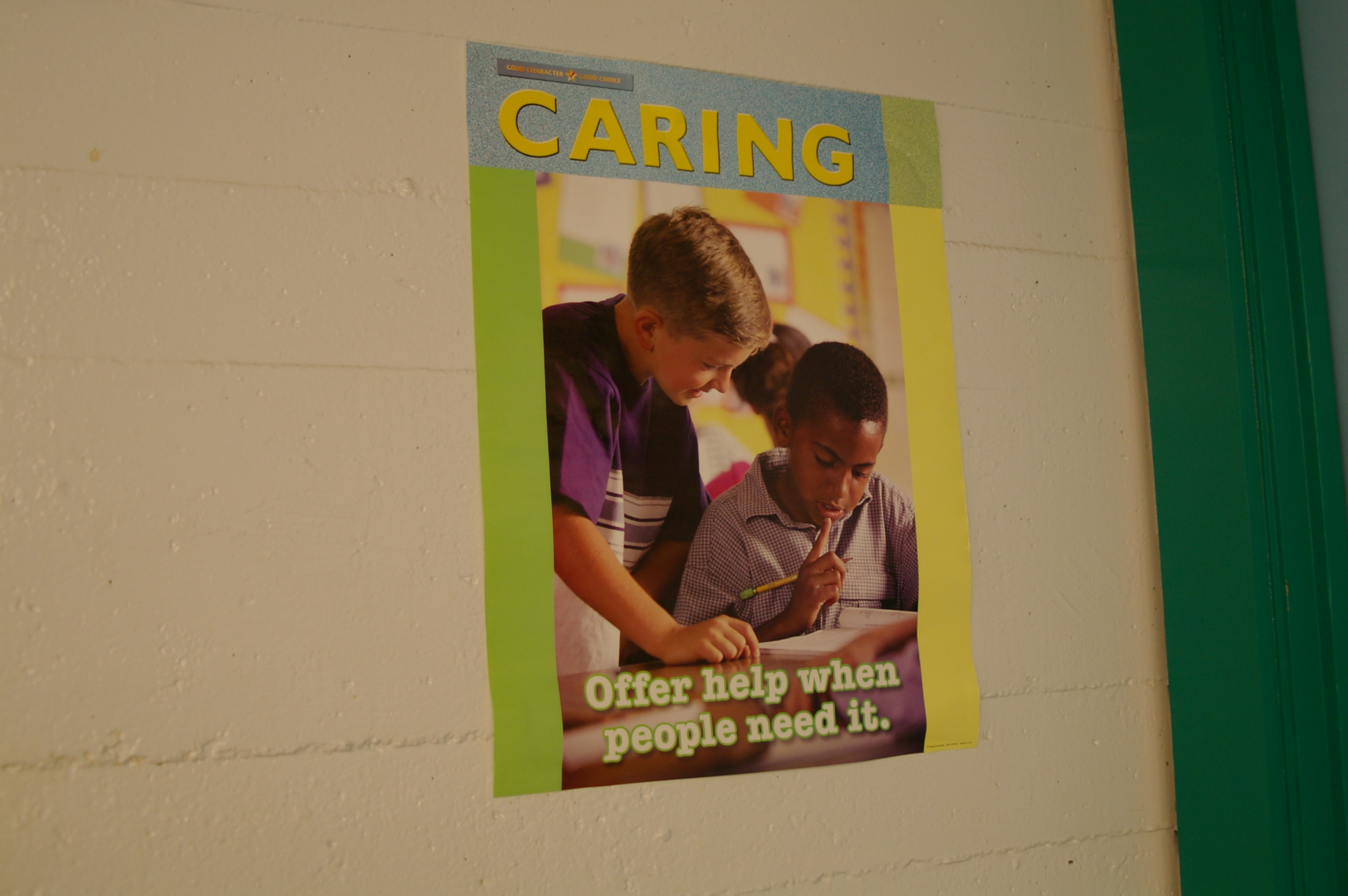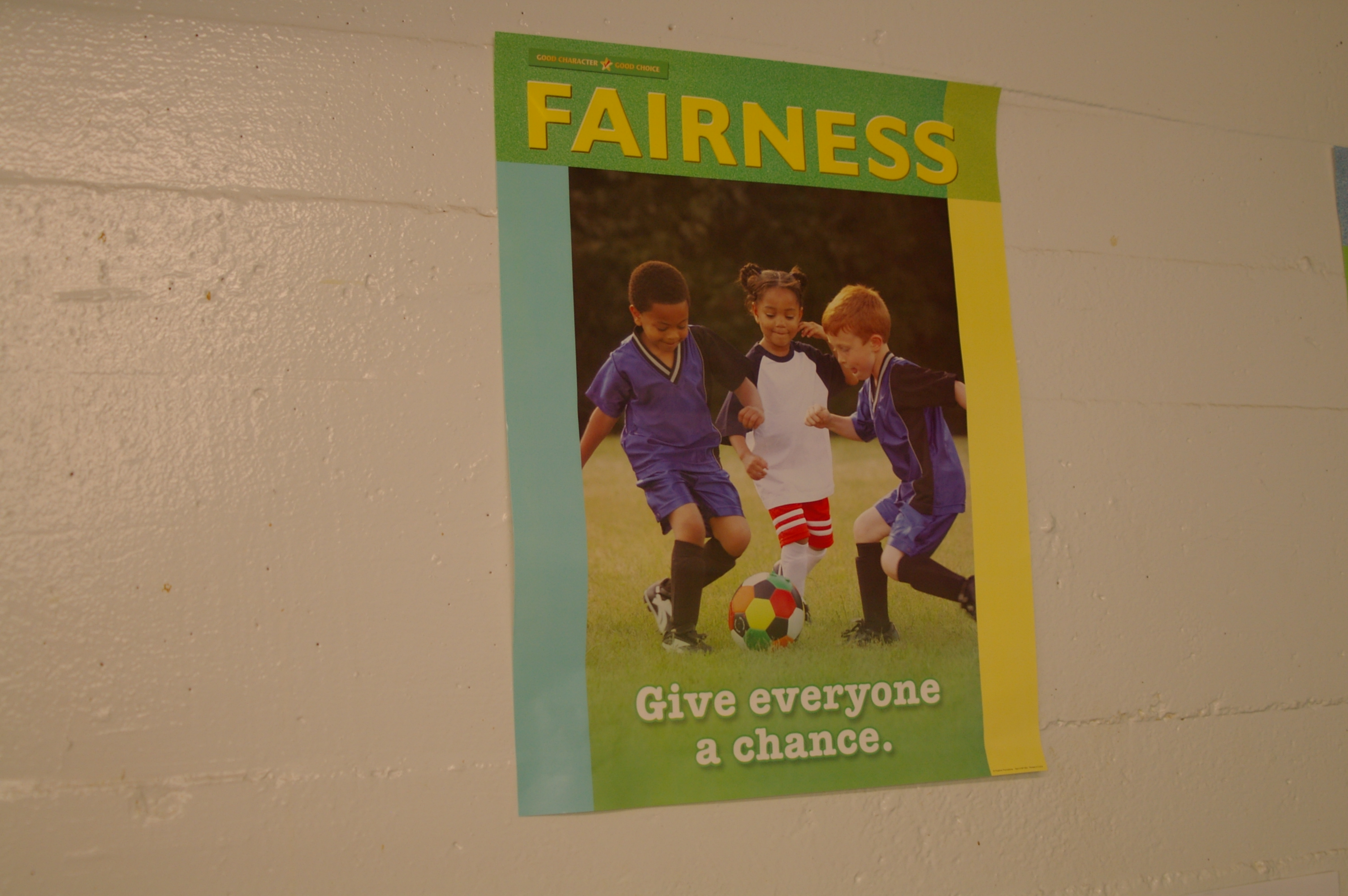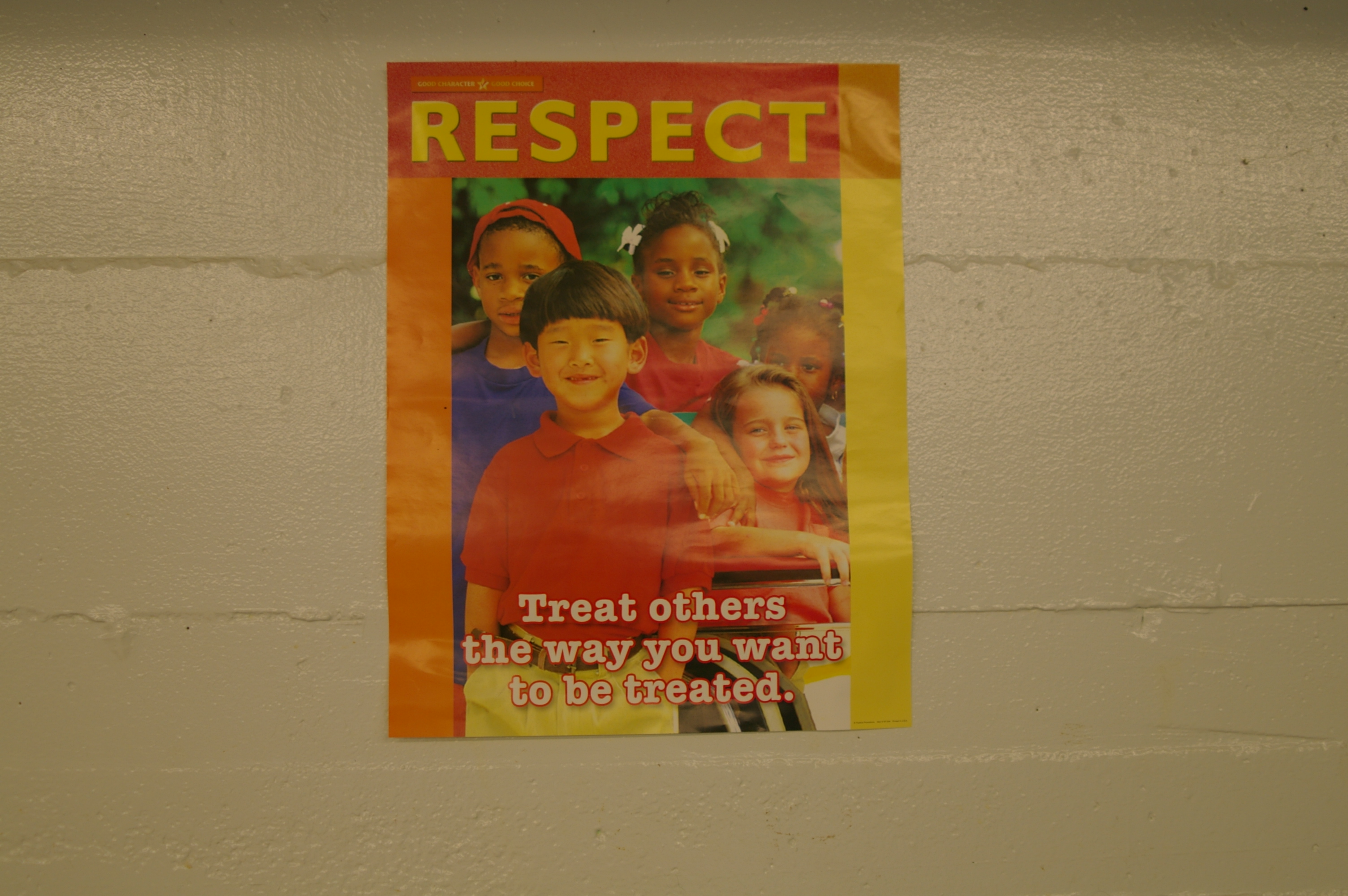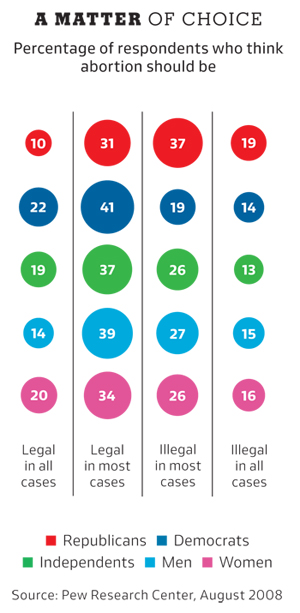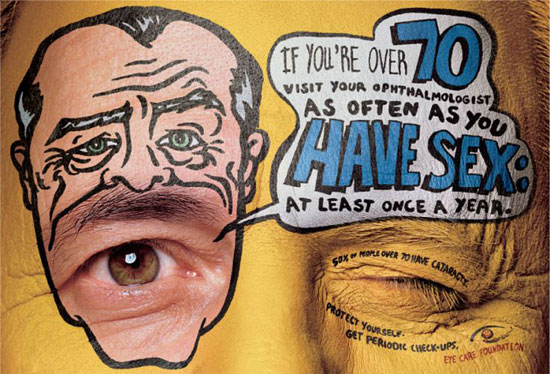Data from the Pew Research Foundation, via Andrew Sullivan.
The trivialization of domestic violence + Obama is going to destroy America + the stereotype of black men as violent. Sigh. Buy it here.
Thanks to Tim C. for the tip!
In this McCain-Palin ad which, I believe, started running yesterday, it is stated that an Obama presidency will bring on international military conflict (at least that’s my reading of the images), while a McCain presidency means no international military conflict.
Sociologically what is interesting about this ad is the way in which danger can be socially constructed. What we fear most is not necessarily what is most likely to cause us harm. Consider, most of us are more afraid of riding in hot air balloons than cars but, even proportionally, your chances of dying in a hot air balloon crash are much smaller than your chances of dying in a car crash. People around us–e.g., our parents and friends, but also politicians–try to shape the degree of fear we have for any given situation. Politicans, especially, are not necessarily doing it out of a concern for our well-being.
What do we really need to fear in the next four years? This McCain ad nicely tries to draw our attention away from the fear of, say an economic depression or climate change, in favor of an international military conflict. Though he doesn’t say so explicitly, it seems obvious to me that he’s implying a terrorist attack. It’s not obvious to me, though, that a military conflict or terrorist attack is more likely to cause extreme and extended suffering than any other potential crisis, but it would useful to McCain if I thought so, because it’s the one sphere in which it is widely agreed that McCain is superior to Obama. Thus, as an extremely powerful figure, he attempts to shape our collective understanding of what is (most) dangerous, what we should (most) fear, and win the presidency through the cultivation of a culture of fear.
Marriage–as a social and legal institution–has not always been what it is today.
In early American history, when families largely lived on farms and worked for sustenance, people didn’t marry because they loved each other. And they certainly didn’t split up because they did not. Marriage choices were highly influenced by their families and, once married, husbands and wives formed a working partnership aimed at production. They teamed up to support themselves and make children who would take care of them when they were old and help them in the meantime.
Today, we still (generally) think of marriage as comprised of a man, a woman, and kids, but mutual love and happiness are now central goals of marriage. This idea only emerged in the 1900s. It hasn’t actually been around all that long.
I bring this up in order to shed some light on the pro- and anti- gay marriage rhetoric.
On the one hand, those against gay marriage need to define “marriage” in a way that excludes same-sex couples. One way to do this is to refer to a “traditional” marriage (image found here).
But there is no such thing as a “traditional” marriage, just a long history of evolving forms of marriage. For example, few anti-gay marriage types would actually be in favor of returning marriage to one in which women were property that can’t contract, vote, testify in court, own anything, and have no rights to their own bodies or custody of their children (though the idea that women are property is still out there today). Because there is no such thing as a “traditional” marriage (that is, no reason to privilege one historical form over another), when someone speaks of “traditional” marriage, they actually just mean “the kind of marriage that I like that I am pretending existed throughout all time before this current threat right now.”
On the other hand, to make an argument in favor of gay marriage rights, the movement must either (1) change the collective agreement as to what marriage is (the social construction of marriage) or (2) convince the collective that gay marriage already is what we believe marriage to be.
This ad in favor of gay marriage does the latter. Mobilizing the social construction of marriage as about love, the commercial then defines same-sex relationships as about love. If you accept both premises, then, presto, you are pro-gay marriage. That is exactly what this commercial is trying to do:
NEW! This Swedish commercial for Bjorn Borg’s dating website, sent in by Ed L., similarly mobilizes the idea that marriage is for love and that gay men’s marriages are, therefore, beautiful:
In The Trouble With Friendship, Benjamin DeMott argues that it is suggested, all too often, that the solution to our troubled race relations is just, well, getting to know and like each other. Television and the movies, for example, are replete with examples of racial harmony. I mean, who doesn’t have a black friend or neighbor!?
DeMott’s friendship ideology obscures the institutional causes of racial inequality that undergird racial tension in our society. Learning to like each other is not going to solve racial inequality in our society because individual one-on-one racism does not exhuast the disadvantage faced by people of color in our society.
In this light, I present to you three pictures, submitted by Muriel M. M., of posters found in an elementary school.
The posters reflect the friendship ideology. Of course, it is nice to encourage friendship and support across racial lines, the danger is in letting our race education stop there.
(From the New York Times)
Highjive at MulticultClassics writes: “The foreigner is stealing trade secrets. The White man is addicted to porn. And the woman is a shopaholic. Maybe the advertiser’s name should be changed to Stereotypes 360.”
NEW! Jasmine sent us more banal stereotypes! These are for eye care (found here).
Because old people NEVER have sex:
And all black people love the blues:

Before there were flight attendants, there were stewardesses. Below a vintage commercial for airlines (found here thanks to AdFreak, see also this print ad):
While pressure on airlines to be less sexist means that we don’t see ads like this anymore, Stephen W. alerted us to the ongoing sexism in “general aviation,” that is private planes and jets owned by individuals and companies.
Airports have FBOs (or “fixed based operators”) which are, essentially, glorified gas stations for planes. A private pilot can choose which airport and thus FBO, or which FBO at which airport, to patronize. So FBOs will compete for customers. Stephen pointed to one strategy: plying pilots, assumed to be men, with sex.
This website allows pilots to see what “FBO Girls” all over the country, the women working behind the counters at FBOs, look like. Another website, FBO Hotties, allows pilots to submit their favorite girls.
Flower Aviation promises that you will be guided into your parking spot by “girls in short ‘skorts’ and tank tops.”
Here are some of the images from the website, notice that when you spend money on fuel, they reward you with red meat (and fresh baked chocolate chip cookies):
So, there you have it. Private aviation, still very much a man’s world.
Other than the objectification, I think an interesting sociological question might be: Why have the airlines dropped overt sexist advertising, while general aviation has not? One possibility is that general aviation is, literally, less public and, thus, less vulnerable to public censor. Another may be that pilots are still overwhelmingly men, unlike the customers served by airlines, and so there may still be profit in sexism for general aviation, but not in commercial aviation. I’d welcome your thoughts as well.

